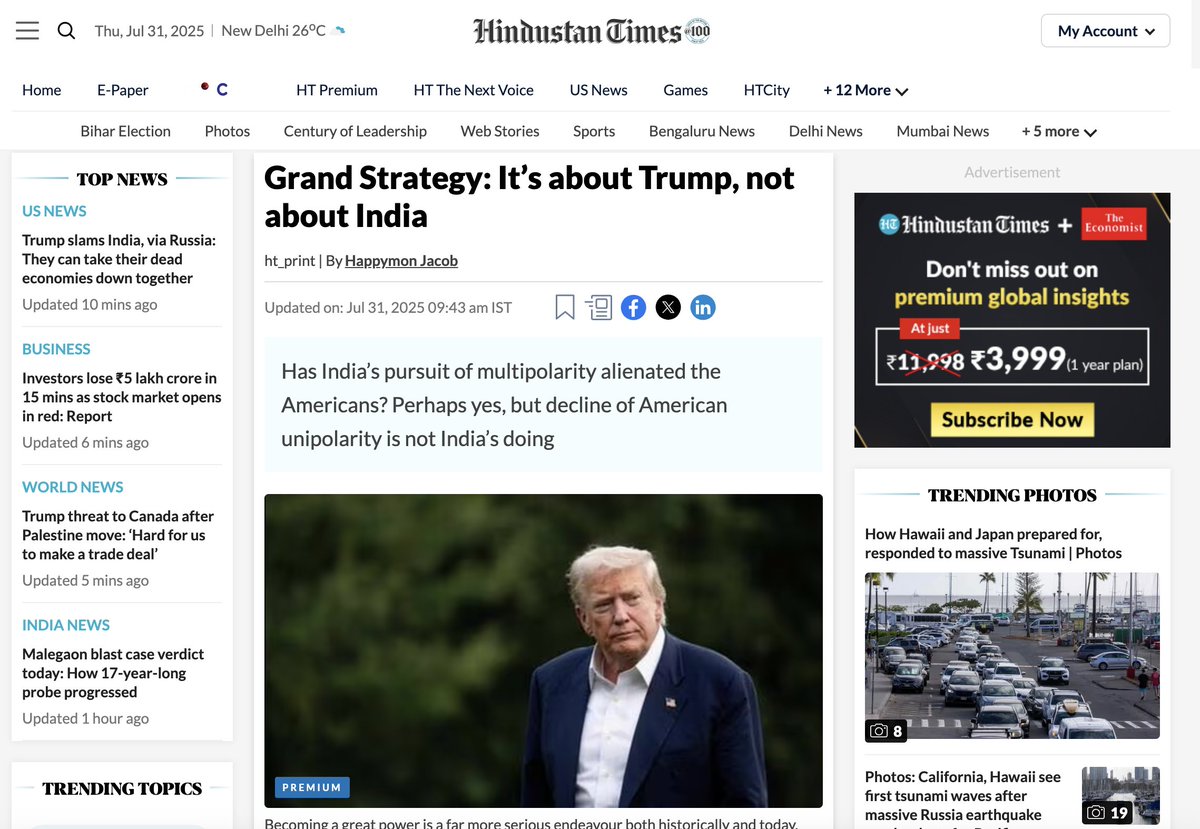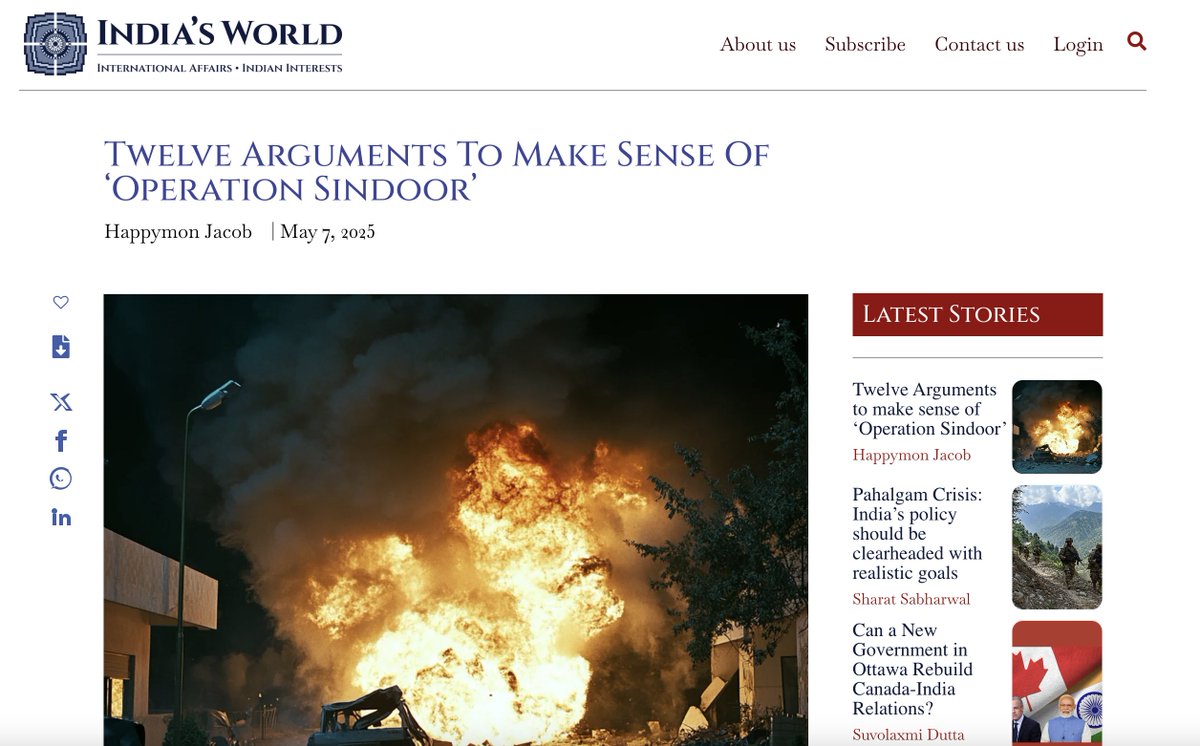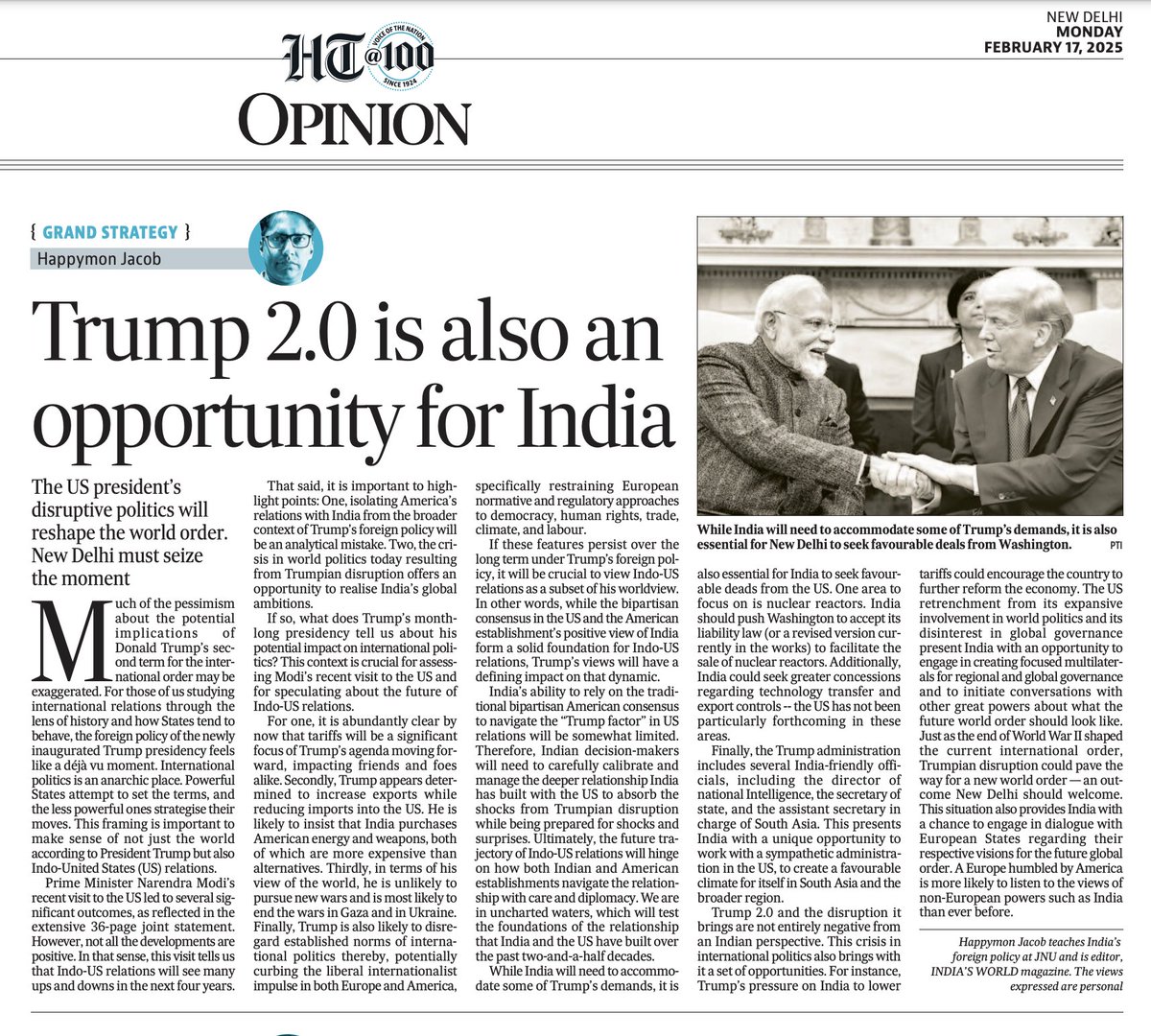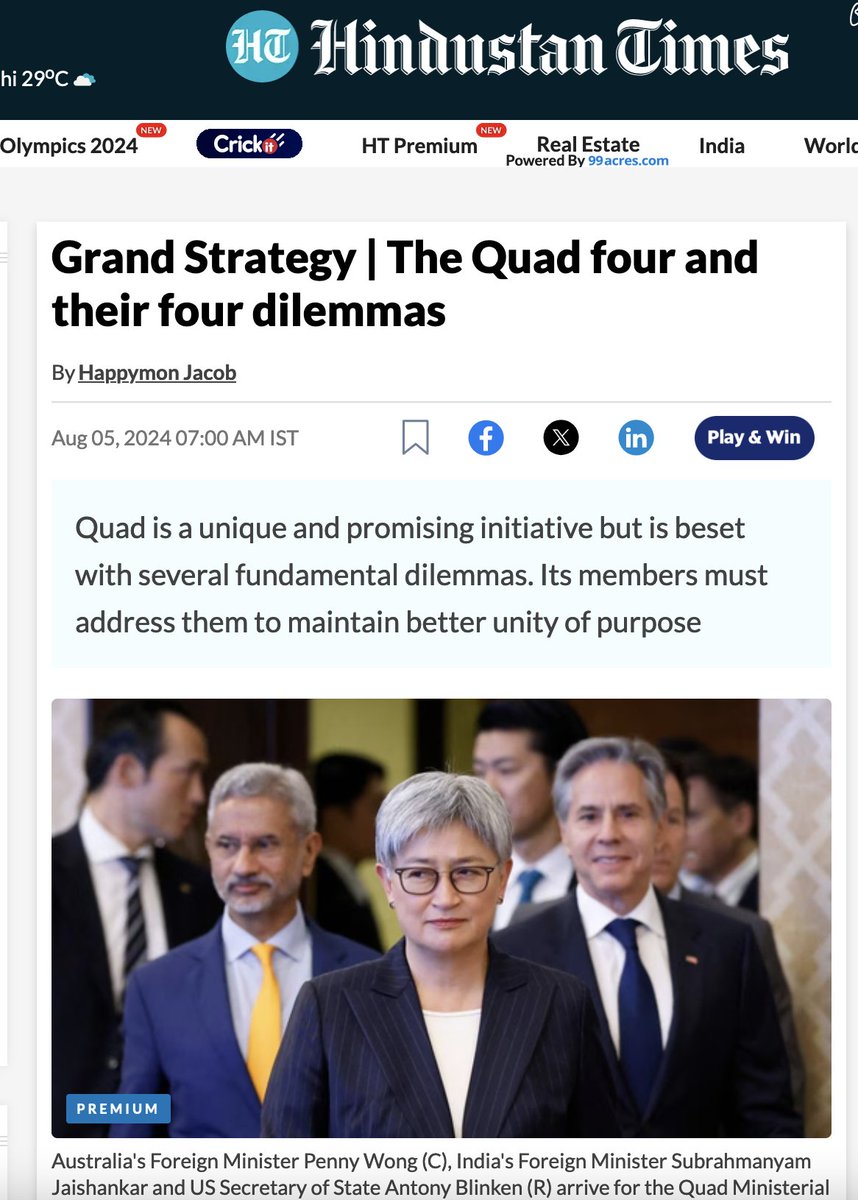
Prof @ShivNadarUniv. Founder @CSDR_India. Editor @IndiasWorld_mag. Ex JNU Prof. Line on Fire (OUP). Columnist @htTweets Bylines @ForeignAffairs @TIME @the_hindu
How to get URL link on X (Twitter) App


 A recent article by noted Indian-American scholar Ashley Tellis in Foreign Affairs, titled “India’s Great-Power Delusions,” argues that India’s utility to the United States has diminished for three key reasons:
A recent article by noted Indian-American scholar Ashley Tellis in Foreign Affairs, titled “India’s Great-Power Delusions,” argues that India’s utility to the United States has diminished for three key reasons:

 2. This strategy aims to progressively increase the costs, stakes, scope, and intensity of the response with each escalation following a terror attack.
2. This strategy aims to progressively increase the costs, stakes, scope, and intensity of the response with each escalation following a terror attack.
 1. Operation Sindoor underscores the idea that the government of India is determined to respond to terrorism, regardless of the consequences of such a response.
1. Operation Sindoor underscores the idea that the government of India is determined to respond to terrorism, regardless of the consequences of such a response.
 2 pointes to be noted:
2 pointes to be noted:
 Dilemma 1: Agenda
Dilemma 1: Agenda